
With nearly all ballots processed, we can say with confidence who will sit in 11 of our 13 City of Portland positions next year. Local media outlets have called 10 of the 12 city council seats and the mayor’s office and the remaining two aren’t likely to change. So, how did cycling, walking, transit and transportation reform in general fare? Pretty good. While a few of the true bicycling believers didn’t get elected, there’s a solid majority of folks who “get it” when it comes to the need for making Portland a place where people drive less often. And maybe even one or two who might emerge as the next great champion for cycling.
And we’ll have a very diverse city council. Politically-speaking we’ll have a mix of five progressives, three centrists, and four moderates (give or take). But let’s start with Mayor-elect Keith Wilson.
You should have a good sense of where we stand with Mayor Keith Wilson based on my story last week. The only other thing I’ll add about him is this: Now that he’s got the power, will he follow-up on his promising background and actions on the campaign trail and become a strong champion for transportation reform? There’s a big gap between being a vocal supporter of something and actually helping move the needle once you get into office.
My questions right now are: Will Wilson spend real political capital to push cycling and discourage driving? Or will he become a “let’s make the system work for all modes” kind of guy and take the easy road of incrementalism for cycling, walking, and transit — while driving continues to dominate? How will he deal with the the significant block of voters who voted for candidates (Terrence Hayes and Noah Ernst in District 1) who ran on pro-driving messages? We’ll have to wait and see.
Let’s turn our attention to council districts.
District 1



Winners: Candace Avalos, Loretta Smith, Jamie Dunphy* (*small chance that Noah Ernst or Terrence Hayes could take Dunphy spot)
Cycling advocates in Portland have long hoped to gain ground in the eastern part of our city. The story in District 1 is what could have been. I was very surprised that neither Steph Routh or Timur Ender earned a seat. Based on their personal and professional backgrounds, those two were among the top transportation reformers in the entire election. Despite that, and rather surprisingly in my opinion, neither candidate made transportation a key big of their platform or campaign conversations. Perhaps they felt bike lanes and road diets are too unpopular with many District 1 voters?
Thankfully, we still have a strong advocate in Candace Avalos, who won her race by a wide margin. Avalos made transportation one of the six pillars of her platform and she’ll be the standard-bearer for active transportation in District 1. She also had very strong answers to the BikeLoud PDX candidate questionnaire, calling for a protected bike lane network, expansion of Biketown, and bike purchase subsidies for people in need. Avalos is the only District 1 winner endorsed by Street Trust Action Fund. She owns an e-bike but doesn’t ride it much.
I was surprised to see Loretta Smith win, but her name recognition and firm public safety stance likely carried her through (as did supportive rankings from people who voted for other moderate candidates like Noah Ernst and Terrence Hayes). She’s also a known quantity with voters after having served seven years on Multnomah County Commission; but she had lost her last three races for local office and didn’t earn a single major media endorsement in this race. Smith doesn’t have a transportation background and it wasn’t part of her platform.
Jamie Dunphy could be a strong voice on transportation. His professional background is in government and nonprofit leadership and his passion lies with the local music scene. His first contact with BikePortland was in his role as an organizer of the lawsuit against Live Nation and their desire to build a venue in the Central Eastside. He was concerned the development might have a negative impact on nearby bike routes. That being said he doesn’t own a working bike at the moment and he’s not someone who bikes regularly. During the campaign he signed a pledge to support the Green New Deal and said he would not take money from police or fossil fuel organizations.
No one in this district rides a bike regularly and two candidates with strong support in the bike community fared very poorly in the vote count. Add in the fact that blatantly pro-driver candidates Noah Ernst and Terrence Hayes not only finished in front of Routh and Ender, they are close to taking Dunphy’s seat. Regardless of how that last spot shakes out, transportation advocates who want progress for cycling and transit in this district will need to remain on high alert.
District 2
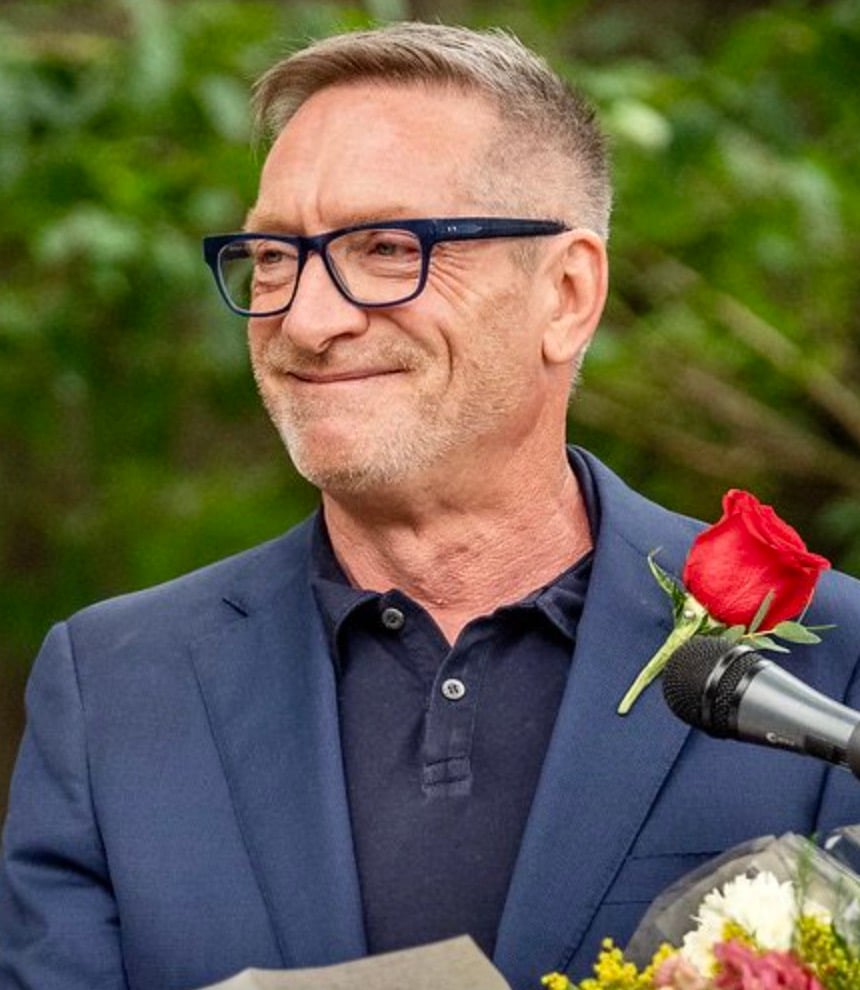
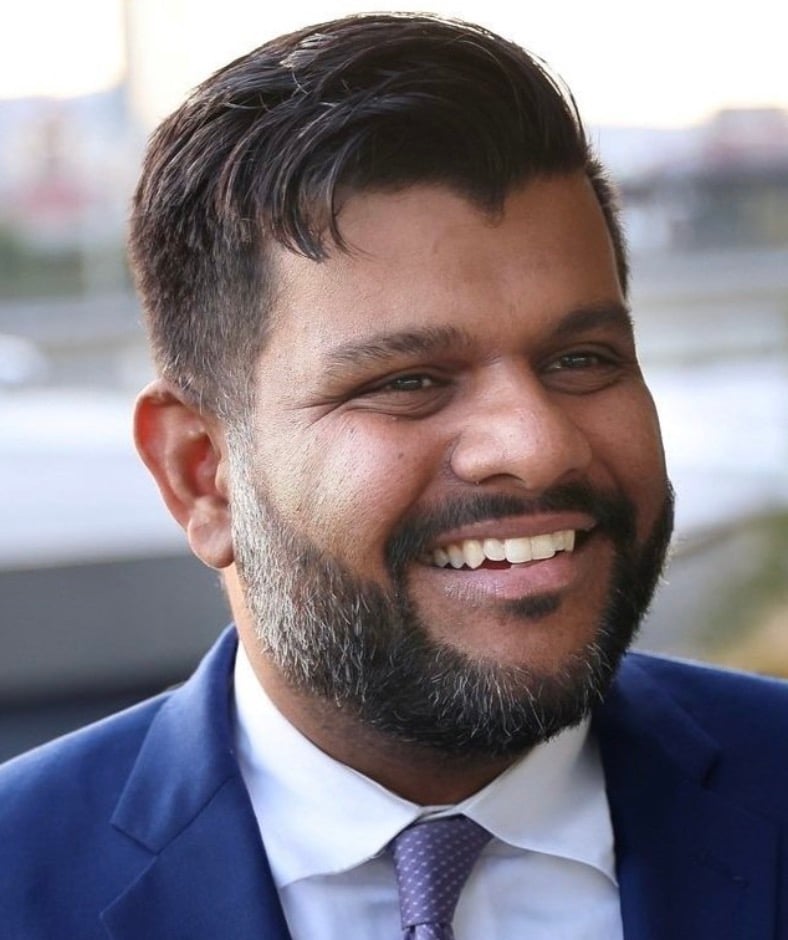

Winners: Dan Ryan, Sameer Kanal, Elana Pirtle-Guiney
The big shock in this district was that Nat West finished 5th, with only half the votes of the winners. Given the number of contributions he amassed, his business background and strong brand behind his name, I expected him to win one of the seats. Similar to the absence of Routh and Ender in District 1, West who would have been a loud voice for transportation reform and the community lost the possibility of a true cycling champion on council.
Thankfully, D2 still has a cycling and transportation majority. Sameer Kanal and Elana Pirtle-Guiney are both solid on the issues and were both endorsed by Street Trust Action Fund. Kanal and Pirtle-Guiney both included transportation in their platforms. Kanal called out Safe Routes to School in his voters pamphlet statement. Pirtle-Guiney could be the strongest cycling champion in D2. She’s a former daily bike commuter who biked during the campaign and has biked with her young child (now 8 years old).
Asked by BikeLoud what she would do to make Vision Zero succeed, Pirtle-Guiney said,
“We need to make a decision about whether we are a safe city for all modes of transportation, or a fast city to get through. Realistically, making streets safer for bike and pedestrian users means we have to slow cars down and make more spaces and more space (different things, and both important) for bike and pedestrian users. This will be inconvenient for a lot of people but we don’t get safer without it.”
I don’t think current City Commissioner Dan Ryan will oppose bike-related policies or projects, but he won’t be a shoo-in either. Ryan has spoken ill of the SE Division project because the center median and bike lanes make it hard for him to make u-turns while driving his car. He also campaigned with law-and-order moderates and is the most well-known councilor-elect who was endorsed by Rene Gonzalez. An interesting dynamic to watch with Ryan is how his relationship with Mayor-elect Keith Wilson will play out. Ryan might not have a majority behind his policy approaches on council, but he and Wilson have been friends for over 40 years and Wilson called him someone he trusts deeply in his acceptance speech last week.
District 3
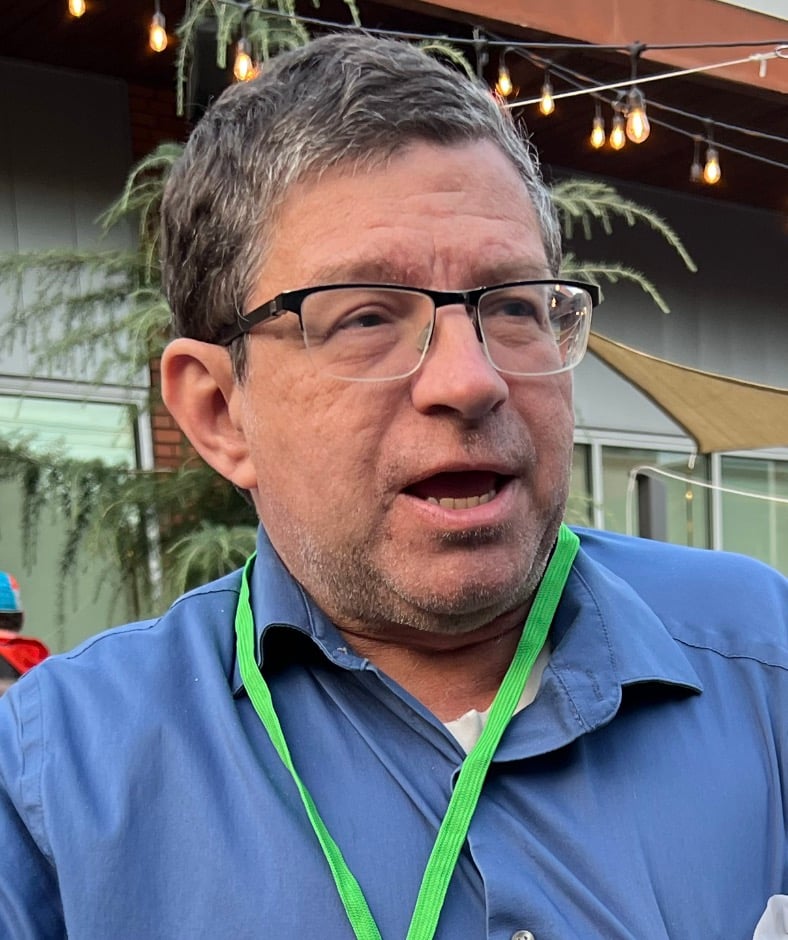


Winners: Steve Novick, Tiffany Koyama Lane, Angelita Morillo
This district, perhaps not surprisingly, elected the most progressive slate of candidates. They also happen to be the strongest trio when it comes to bicycling and transportation issues we tend to care about here on BikePortland.
You already know a lot about Steve Novick thanks to his former turn as city commissioner and I shared recently how he’s still thinking creatively about how to make streets work better for bike riders. He made transportation a part of his platform and approaches it from a climate change lens.
Tiffany Koyama Lane has commuted to school on a scooter, so she intimately understands what it’s like to be vulnerable on our streets. She also earned the Street Trust Action Fund endorsement and goes into detail about safe streets, vision zero, transit expansion and more on her campaign website.
Angelita Morillo bought and began riding a bike during her campaign (it had a flat last I heard, so I hope she’s fixed it!). I have no doubt she will be a strong voice for cycling and low-car life on council. She grew up without a car, is a daily bus rider, and she brought up transportation reform on the campaign trail many times.
Southeast Portland transportation needs are in very good hands with these three. I’ve also noticed that Koyama Lane and Morillo have become good friends and they have a nice rapport with Novick too. If this trio works together on transportation, and perhaps form a bloc that attracts four other councilors, amazing things could happen.
District 4

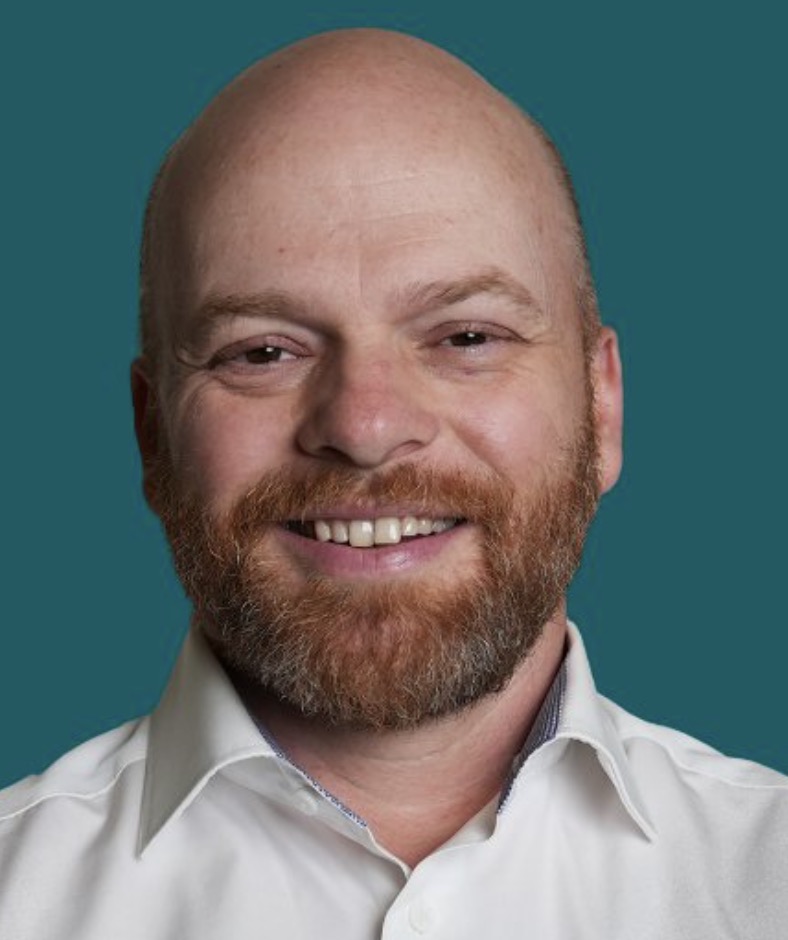
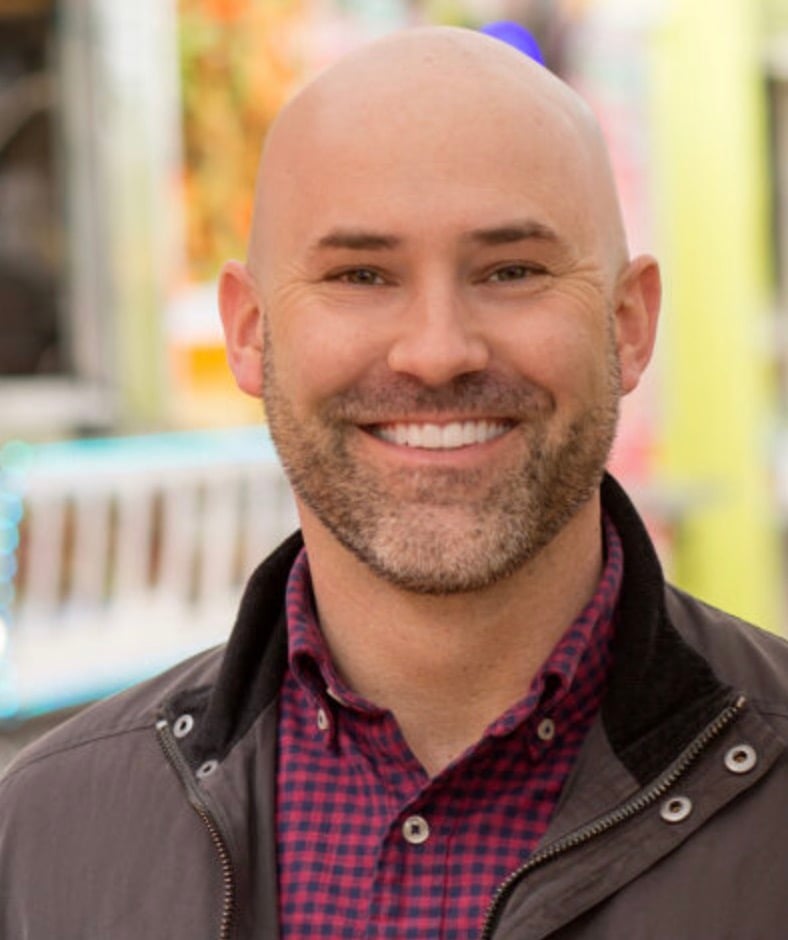
Winners: Olivia Clark, Mitch Green, Eric Zimmerman (Eli Arnold)
Just like we expected D3 to be the most progressive, District 4 (West/Sellwood) ended up most moderate. It also has one of the strongest champions for cycling on council in Mitch Green. Green doesn’t bike exclusively, but hops on his RadPower e-bike about three times a week for commuting or errands. He’s also a frequent transit rider.
Green told the Bike Happy Hour crowd back in March that,
“If we want more folks in the city getting on their bicycles, we need to make serious capital investments to change the built environment. You have to feel safe on a bicycle. You can only do that by making investments from the budget, not just little nudges on the margins. You have to show up and make the expenditures. That’s something worth fighting for.”
We’ll see how much Green is willing to have that fight — and whether he can get others to support him — come January.
Clark and Green might see eye-to-eye on street policies. Like Green, Clark was endorsed by Street Trust Action Fund and she’s ridden bikes before (although not regularly like he does). I haven’t spoken to Clark yet, her platform didn’t include transportation, her answers to the BikeLoud PDX questionnaire were very short and superficial, and she hasn’t spoken to the media much so I don’t have much knowledge about her transportation views.
Zimmerman is a bit of a wild card to me. My hunch is that he’ll be great on transportation. Zimmerman has deep experience in local government and has gotten hard things done before (like setting up homeless shelters at the County and working on tough issues in Portland City Hall under Ted Wheeler). His website calls for more protected bike lanes. And instead of bashing PBOT or their projects, he offers constructive criticisms to make their approach work better on the ground like calling for more standardization of lane designs, more education for e-scooter users, and so on.
Overall
Portland’s council election gives progressives a lot to be excited about. There’s five that should be reliably progressive: Avalos, Kanal, Koyama Lane, Morillo, and Green. That leaves them in the minority and means they’ll have to find votes from centrists (Dunphy, Pirtle-Guiney, Novick) and moderates (Smith, Ryan, Clark, Zimmerman) to get anything done. The electorate and the candidates moved a few steps to the center from 2020, but not far enough to begin the Rene Gonzalez era that felt imminent months ago.
Green in D4 is the closest thing we’ve got to a councilor that will ride to work and be a true champion, but it’s not clear if he’ll want to assume that role. With West, Routh, and Ender not making it in, I don’t see anyone at this point who bike advocates can lean on as their councilor. But overall, I feel like the issues BikePortland cares about are in really good shape — especially if Steve Novick is elected council president (a real possibility in my opinion).
It’s also fun to note that we have a strong Bike Happy Hour majority in City Hall with 8 of the 13 elected officials (12 councilors and one mayor) having attended and/or spoken at one of our events: Kanal, Pirtle-Guiney, Novick, Koyama Lane, Morillo, Green, Zimmerman, and Mayor-elect Wilson!
How are you feeling about the new city council? I’d love to hear from you.




